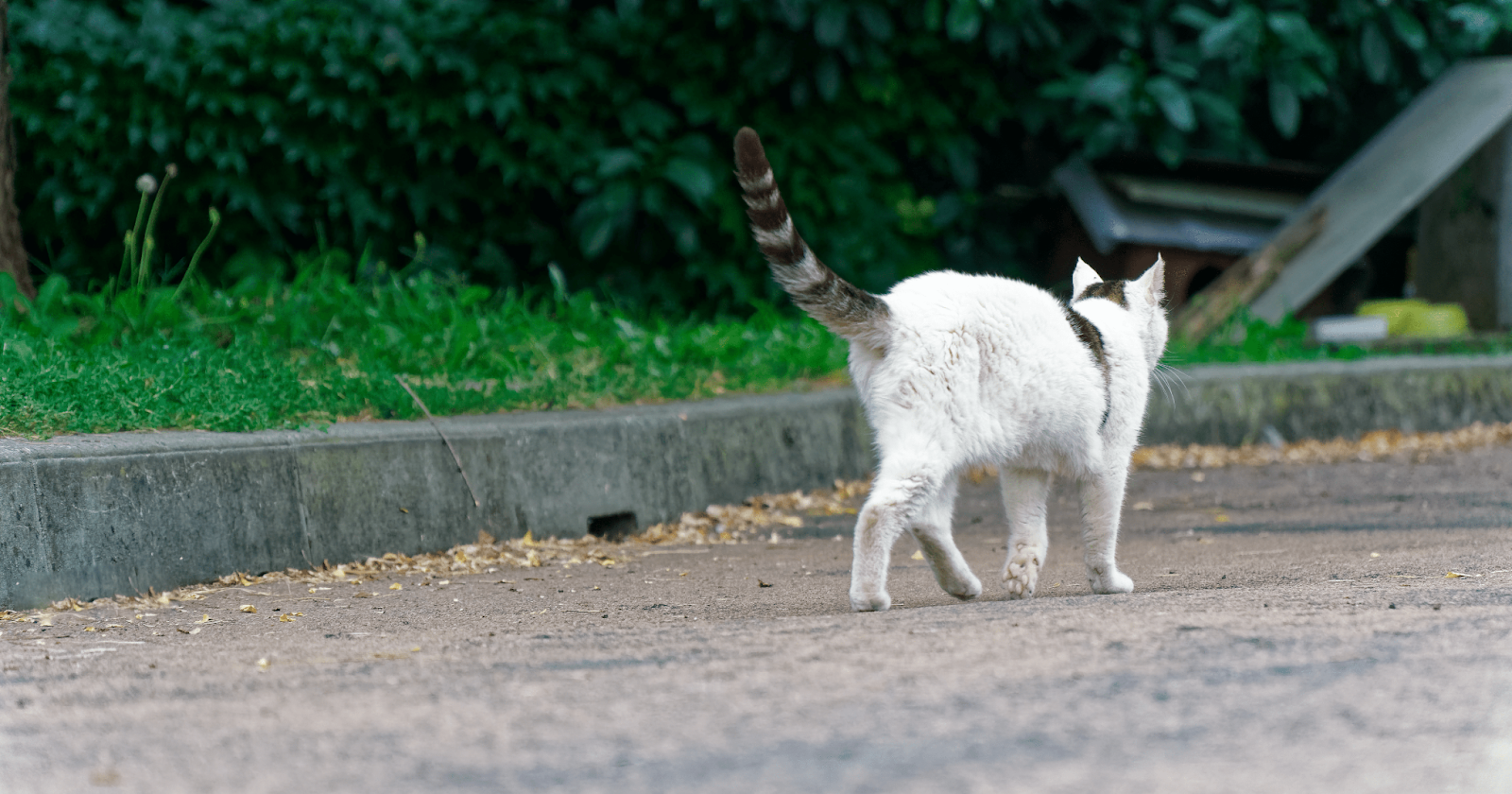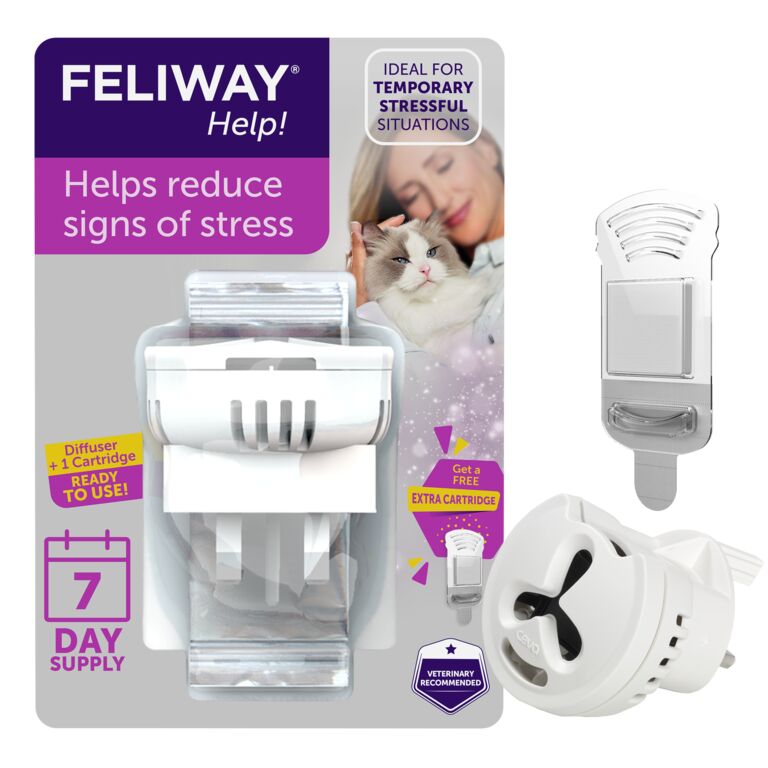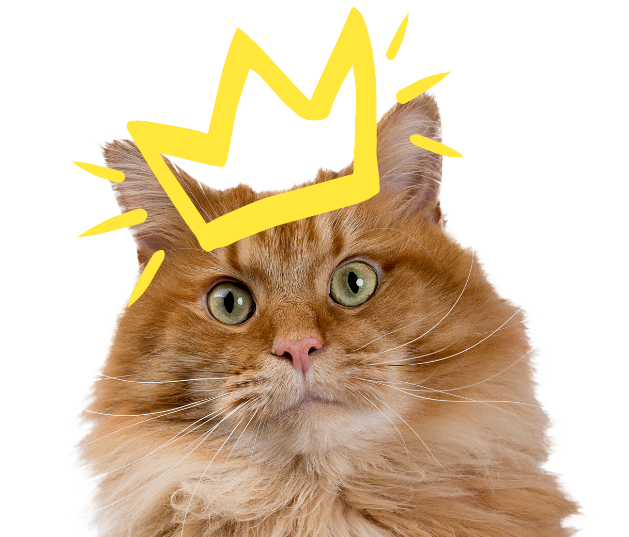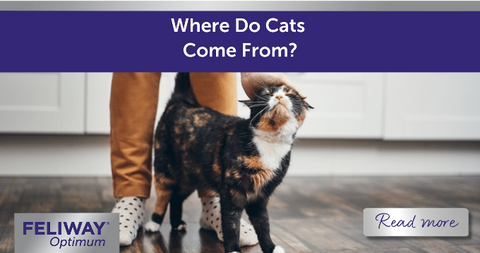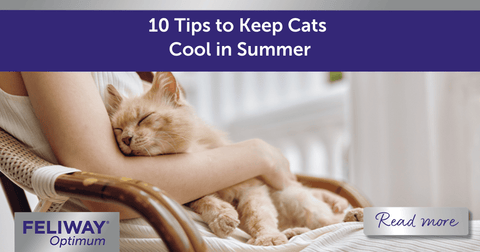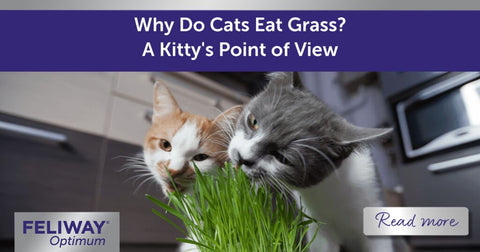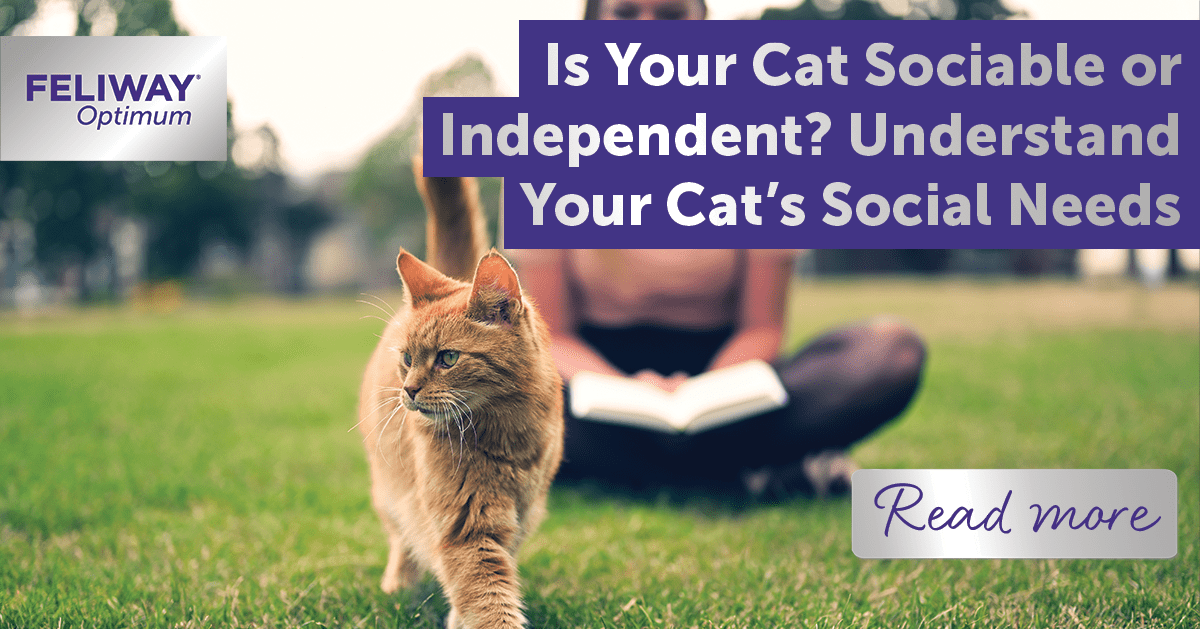
Is Your Cat Sociable or Independent? Understand Your Cat's Social Needs
Cats are sociable animals, but they can also be independent and remarkably adaptable!
Their ancestors in the wild were (and still are) solitary animals, although when they form groups they work well together; particularly a mother and her kittens.
This was confirmed in a survey undertaken by Prof Mills and his team at the University of Lincoln, who described 5 relationship types between cats and owners - indicating that whichever of the 5 relationships a person and kitty have, can depend on the level of emotional investment that person gives invests in their cat.
These relationships were categorised as follows:
- Open relationship - owner is lightly emotionally invested in their cat and the cat rarely hangs out with the person (may be seen as being aloof)
- Remote association - cat and owner happy to 'do their own thing'
- Causal relationship - the cat is pretty sociable with people, but not specifically the owner and the owner doesn't necessarily consider the cat as a member of the family
- Co-dependent - the owner adores their cat, and the cat wants to be around the person as much as possible (over interacting with other people)
- Friendship - the owner is emotionally invested, and the cat wants to be around them, as well as others.
Domestic cats follow these traits and you will find that your cat can be both sociable and independent; they rely on you to provide their creature comforts and their food, but they don't mind if you leave them alone for a couple of days while you have a weekend break!
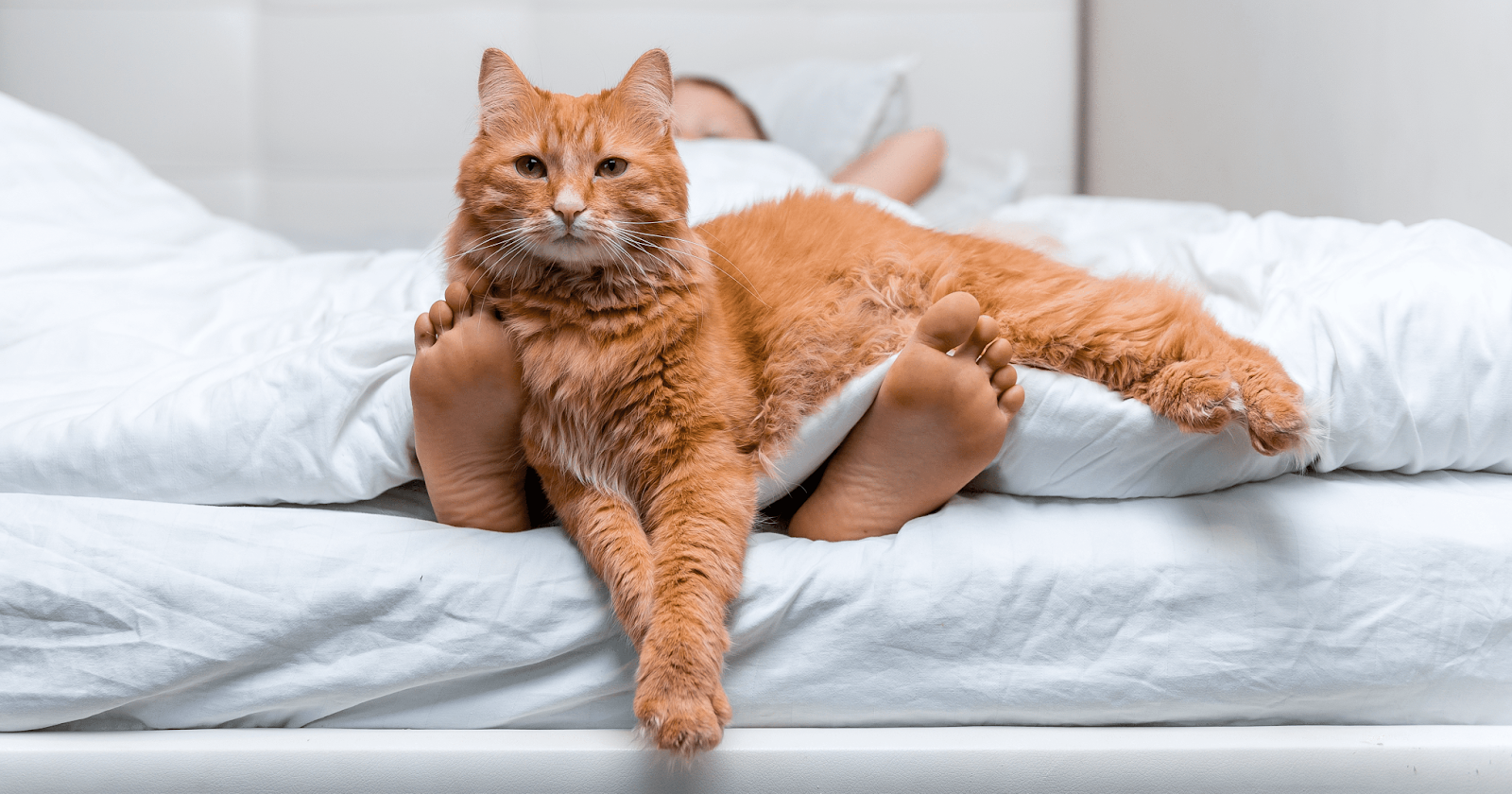
Understanding your cat's social needs
Like humans, cats have individual personalities and the level of their social needs will vary. Sometimes, the cat's breed will have an impact on the level of independence. The RagaMuffin for example, is known to love being with people, so will be happy to spend a lot of time with you, but the Russian Blue or Persian breeds are often happy with their own company.
The Norwegian Forest Cat is a very active breed that loves hunting and climbing, so may like to spend most of their time outside, whereas a British Shorthair likes to relax and will be quite happy to keep you company while you are relaxing.
It's important to respect the level of social interaction your cat prefers and work with them to try and develop this, to your mutual benefit. However, it is important that you do not force interaction with your feline friend, this could alienate them and have a negative effect on your relationship.
How to develop your cat's social skills
Start from an early age
As well as genetics playing a part in your cat's social demeanour, early experiences can also play a large part. If your kitten is handled gently and frequently by different people when they are young (between 2-7 weeks) they are more likely to develop a stronger relationship with humans.
However, since a kitten should not be rehomed until it is around 8 weeks old, their social skills will very much depend on the breeder, how much time they are able to spend with each individual kitten in the litter, and how often you can visit them and start to build that bond. It is also wise to consider your own plan for socialising your kitten once they can come home with you! For example, do you have lots of family members or children in the home who can regularly handle a kitten? Or do you plan to have visitors who can come and support your kitty socialisation?
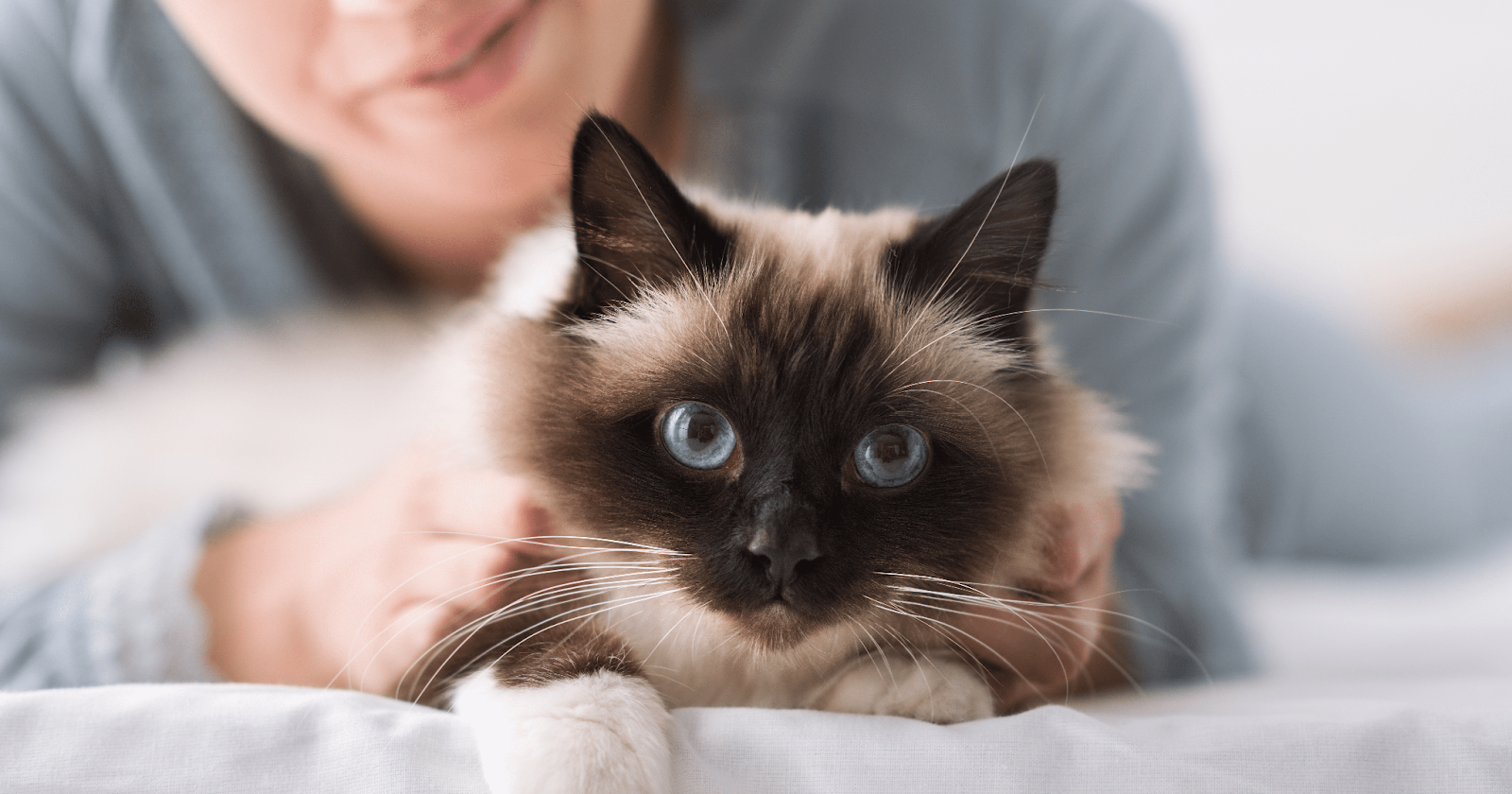
Cater to their every need
As a cat parent, it's your responsibility to ensure that your purrfect feline friend has everything they need, but this is not restricted to making sure they are fed regularly. It also means that you provide them with comfort, safety and lots of love and attention, comfy beds, elevated spots where they can feel safe, grooming and regular playtimes. Collectively, these will help develop your cat's social skills.
Providing a calm and relaxed environment in the home will also help your kitty to develop their social skills. FELIWAY Optimum can help in more signs of feline stress, in more situations, and calms cats better than ever.
Learn to speak cat!
If your cat is blinking at you, kneading your lap or staring at you, do you know what they are saying? Understanding a cat's body language is imperative if you are going to help develop their social skills.
- If your cat blinks at you, it's polite if you wink back at them, this is a sign of love!
- If your cat kneads your lap, this is often a sign of pleasure and that they are happy just being in your company, but sometimes a cat kneads to soothe themselves if they are feeling a little stressed.
- If your cat's ears and whiskers are facing forward, and their tail is up, it's a sure sign they want to interact with you
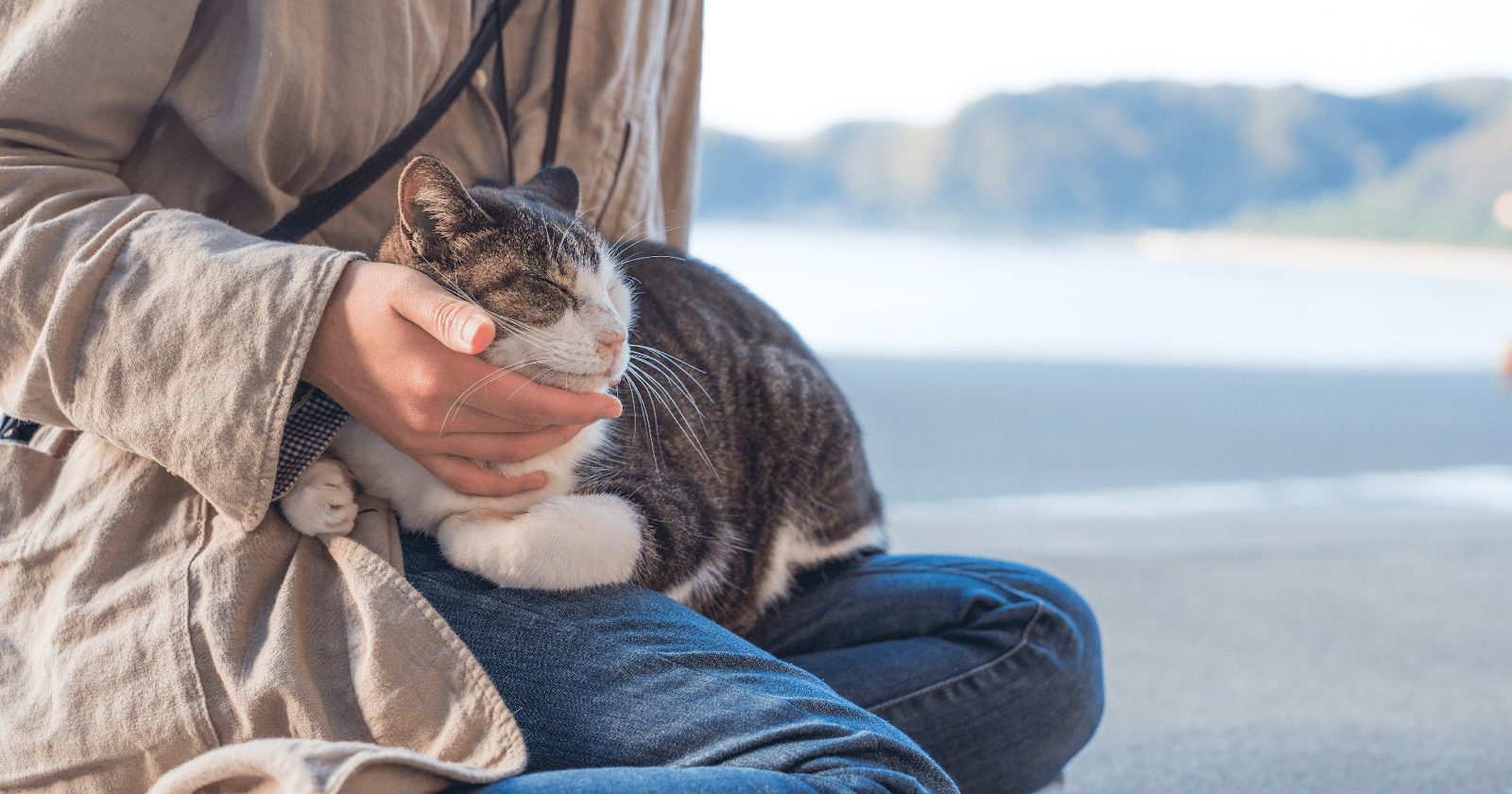
Have fun together
Although your cat will play independently too, hiding, climbing, or developing their hunting skills by chasing, you can join in the fun by replicating some of these experiences. Putting aside time each day and learning how to play with your cat, will not only keep them active and mentally stimulated, it will support their social skills and develop your relationship even more.
Understanding your cat's independence
Cats are by nature, independent, but sometimes this is perceived as being 'aloof' or 'standoffish'. Cats like to feel in control of their destiny, that's why they like routine, and like to know how their day is mapped out, any change in routine can throw a cat into a tailspin and they are likely to take themselves off to a safe space until their day returns to normal. So, if you are planning any changes around the home, or you are having strangers to visit, the chances are your cat will not be very sociable.
Let your cat call the shots
When your kitty approaches you, let them do it in their own time. Keep an eye on their tail, which can be a good indication of how they are feeling, if they approach you and their tail is held high this means they are comfortable and are feeling friendly. They will probably start to rub up against you, at which time they will probably be receptive to you stroking them, but make sure you stroke them in just the right places!
The AAFP and ISFM Feline Environmental Needs Guidelines, outlined 5 Pillars of a healthy feline environment and whether your cat is sociable or independent, could rely on whether you meet these standards. Do you:
- Pillar 1: Provide a safe place?
- Pillar 2: Provide multiple and separated key environmental resources: food, water, toileting areas, scratching areas, play areas, and resting or sleeping areas?
- Pillar 3: Provide opportunity for play and predatory behaviour?
- Pillar 4: Provide positive, consistent and predictable human‚ -cat social interaction?
- Pillar 5: Provide an environment that respects the importance of the cat's sense of smell?
Like any relationship 'you get out what you put in' and if you respect that your cat does sometimes like its independence, it will make all the sociable interactions you have all that more special.
